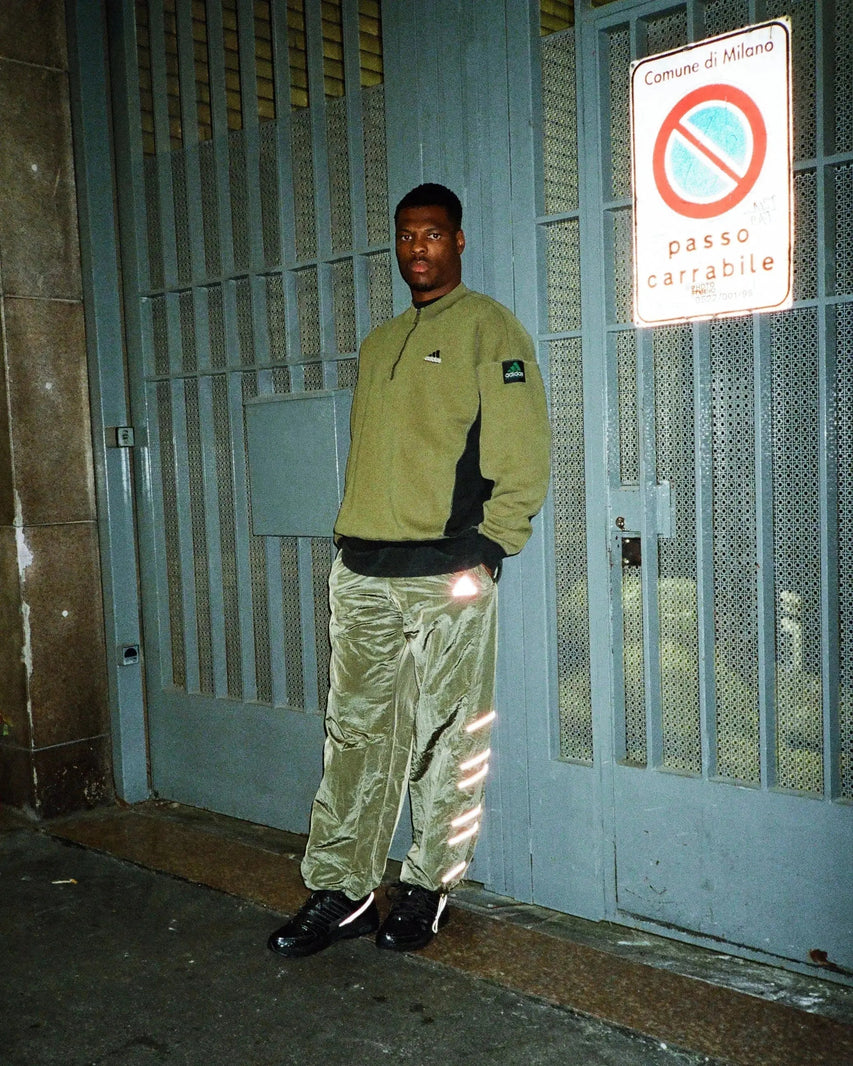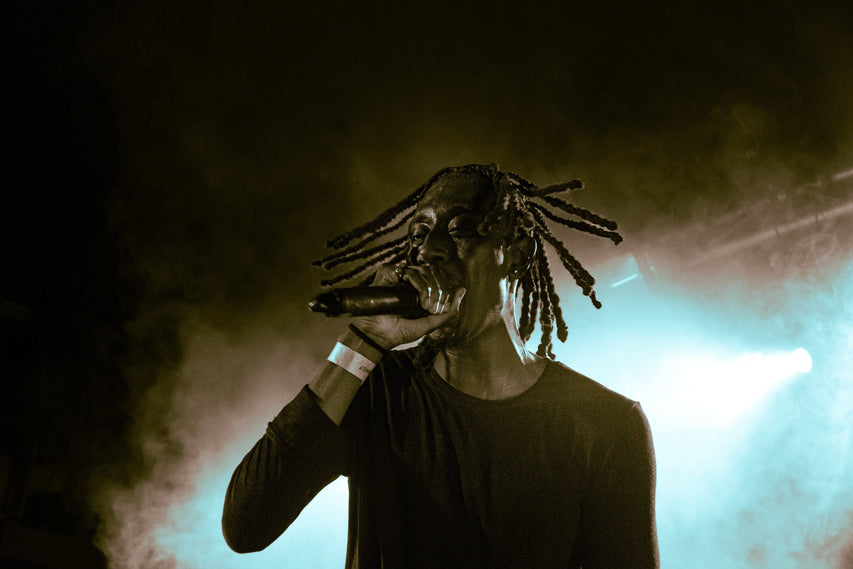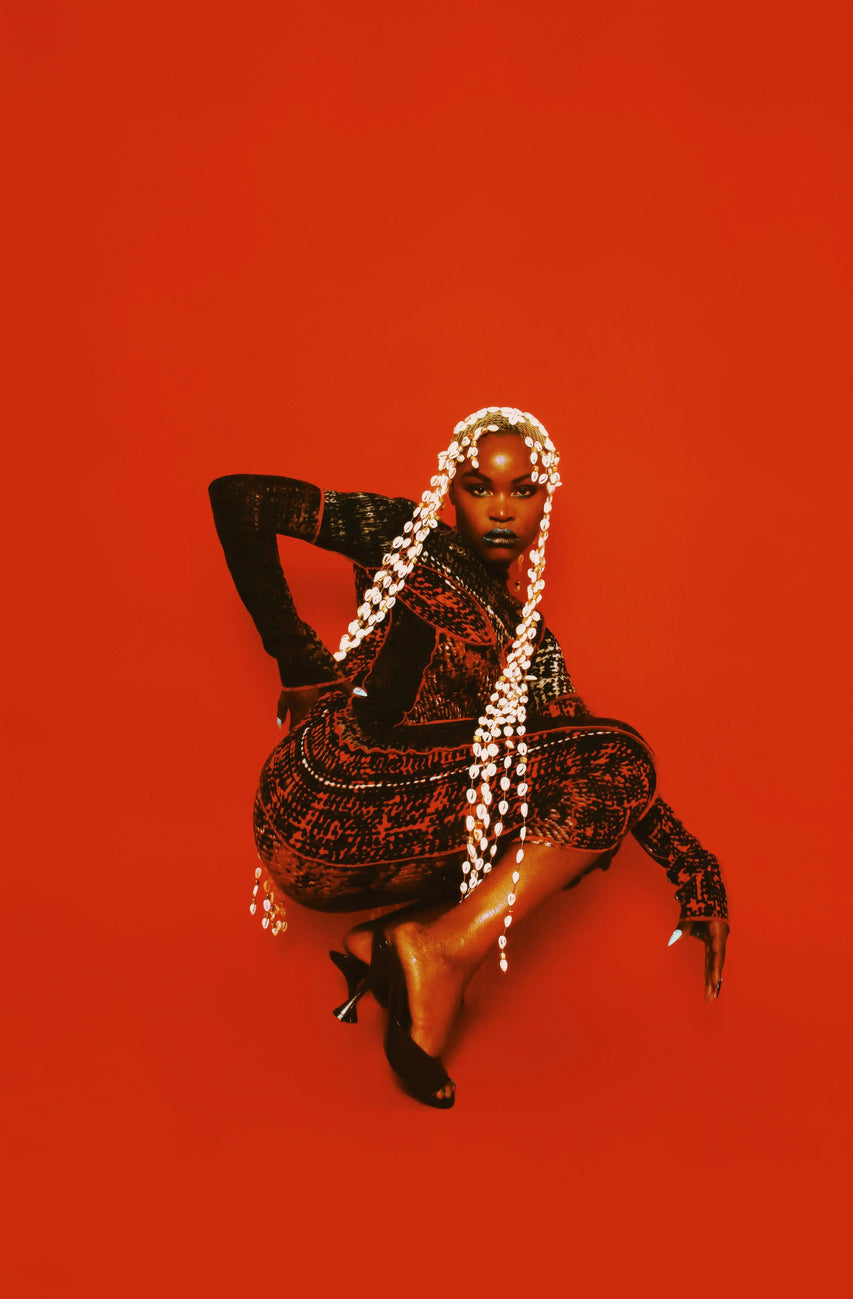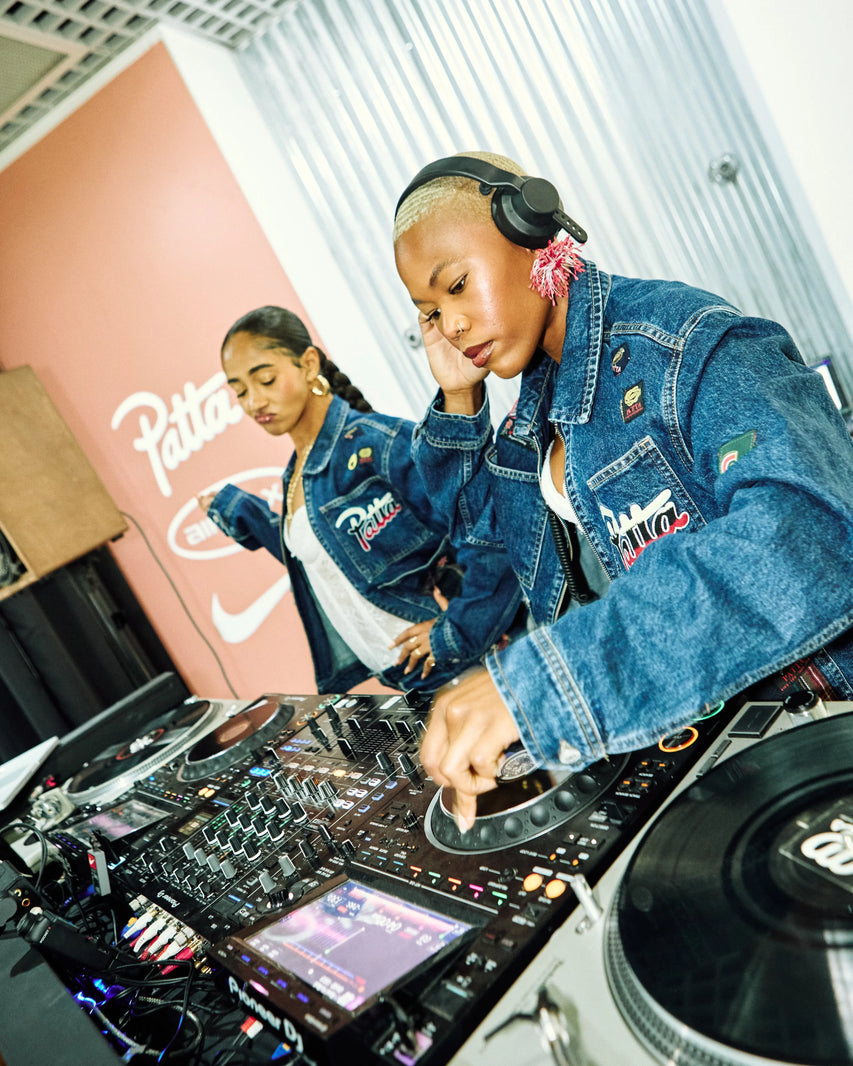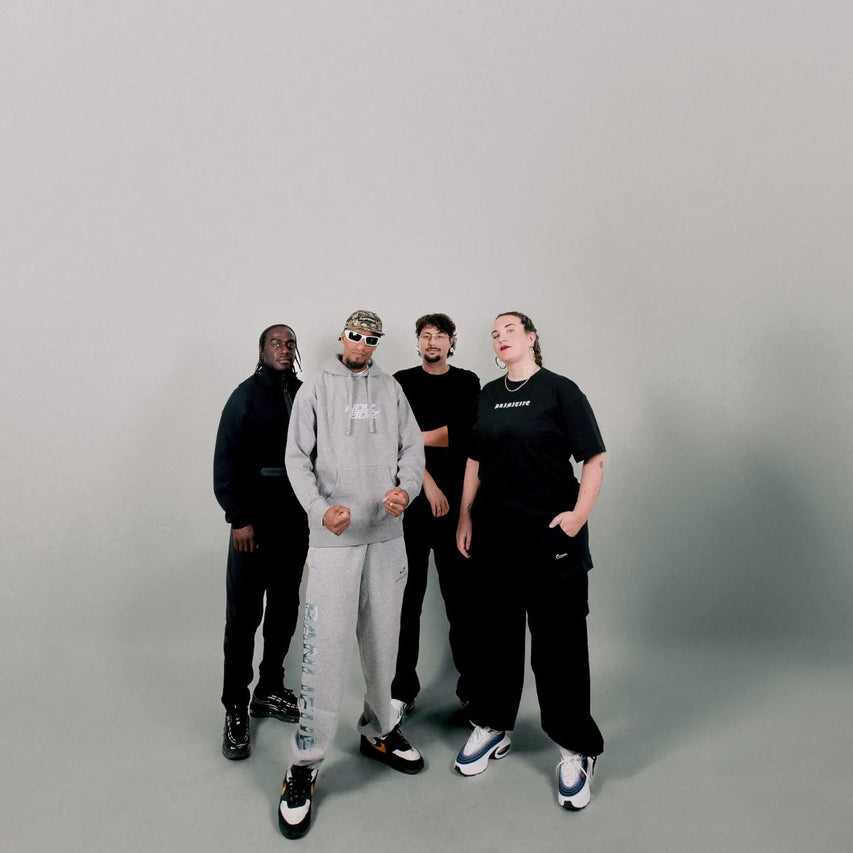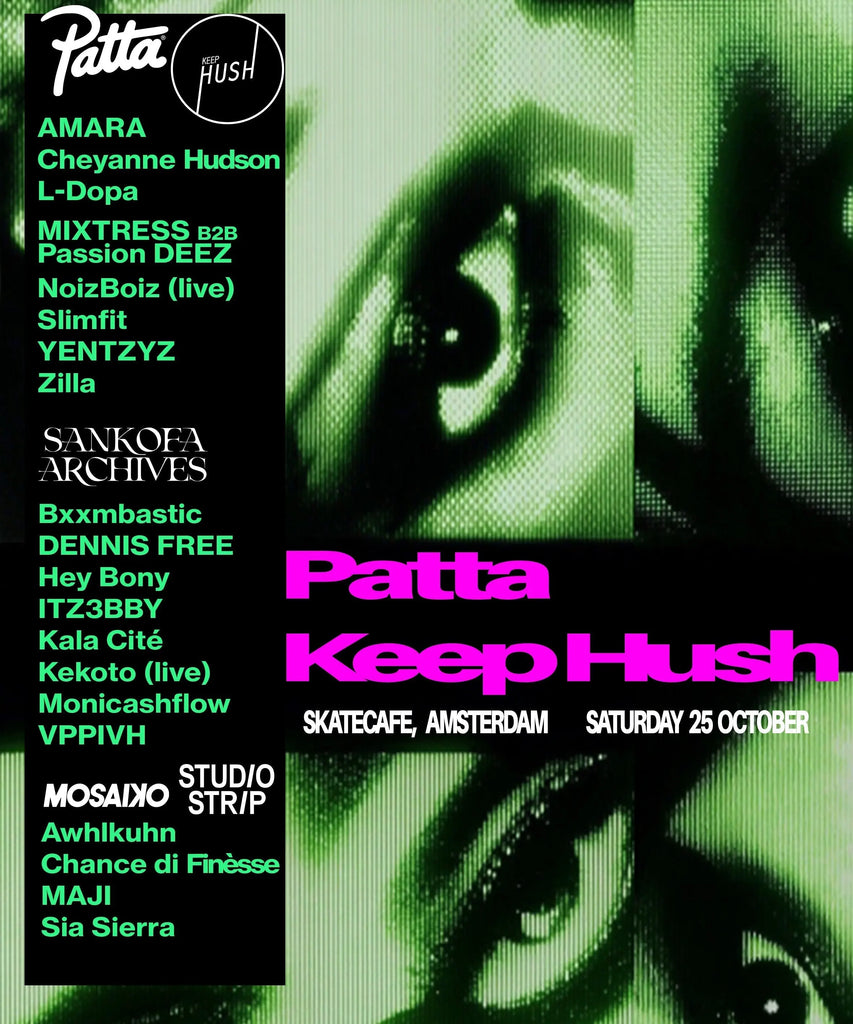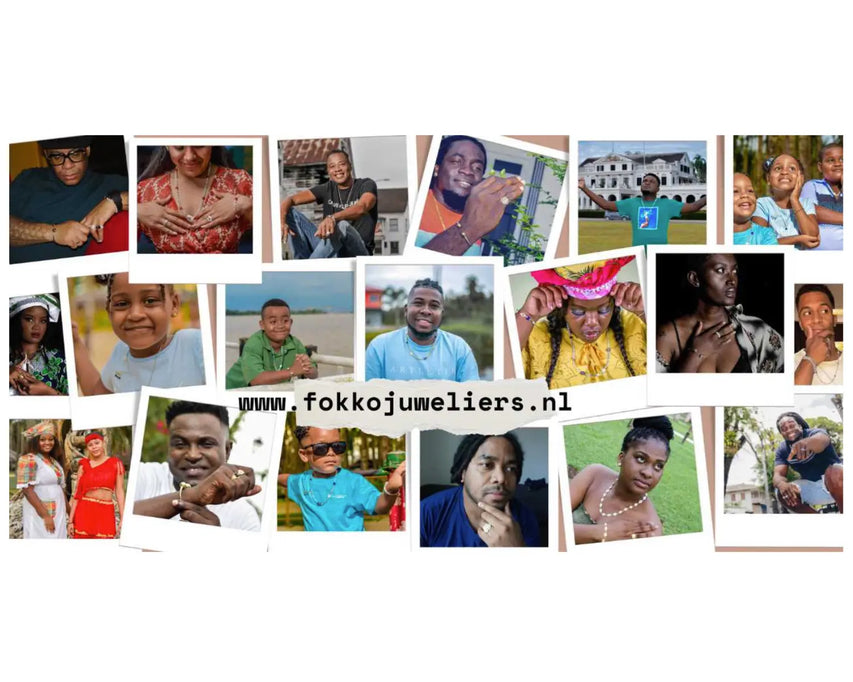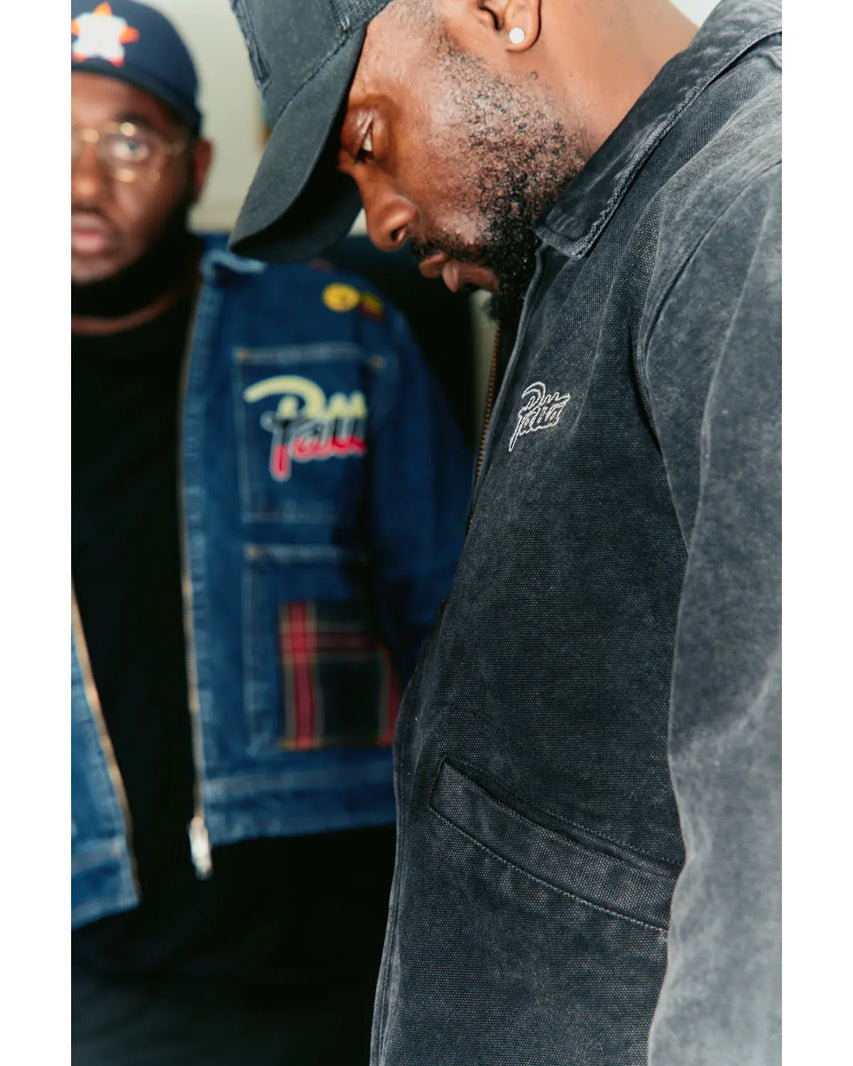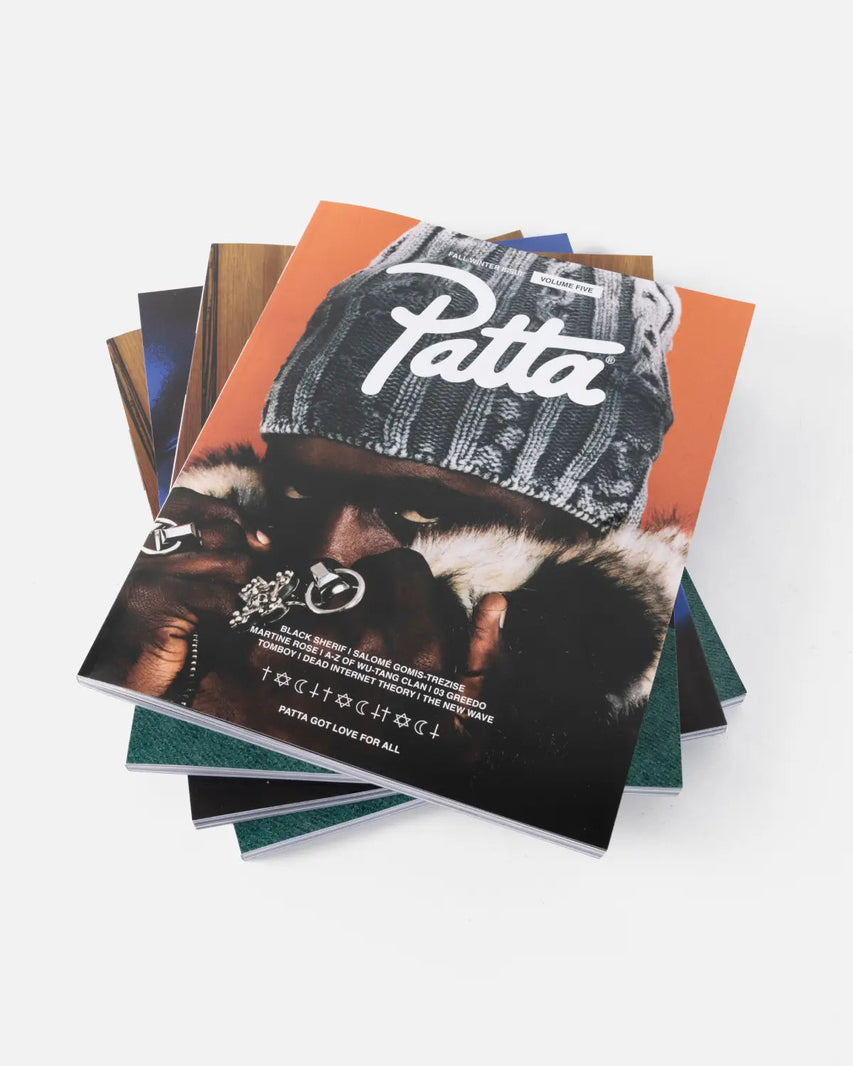
Tales from the Echobox 025
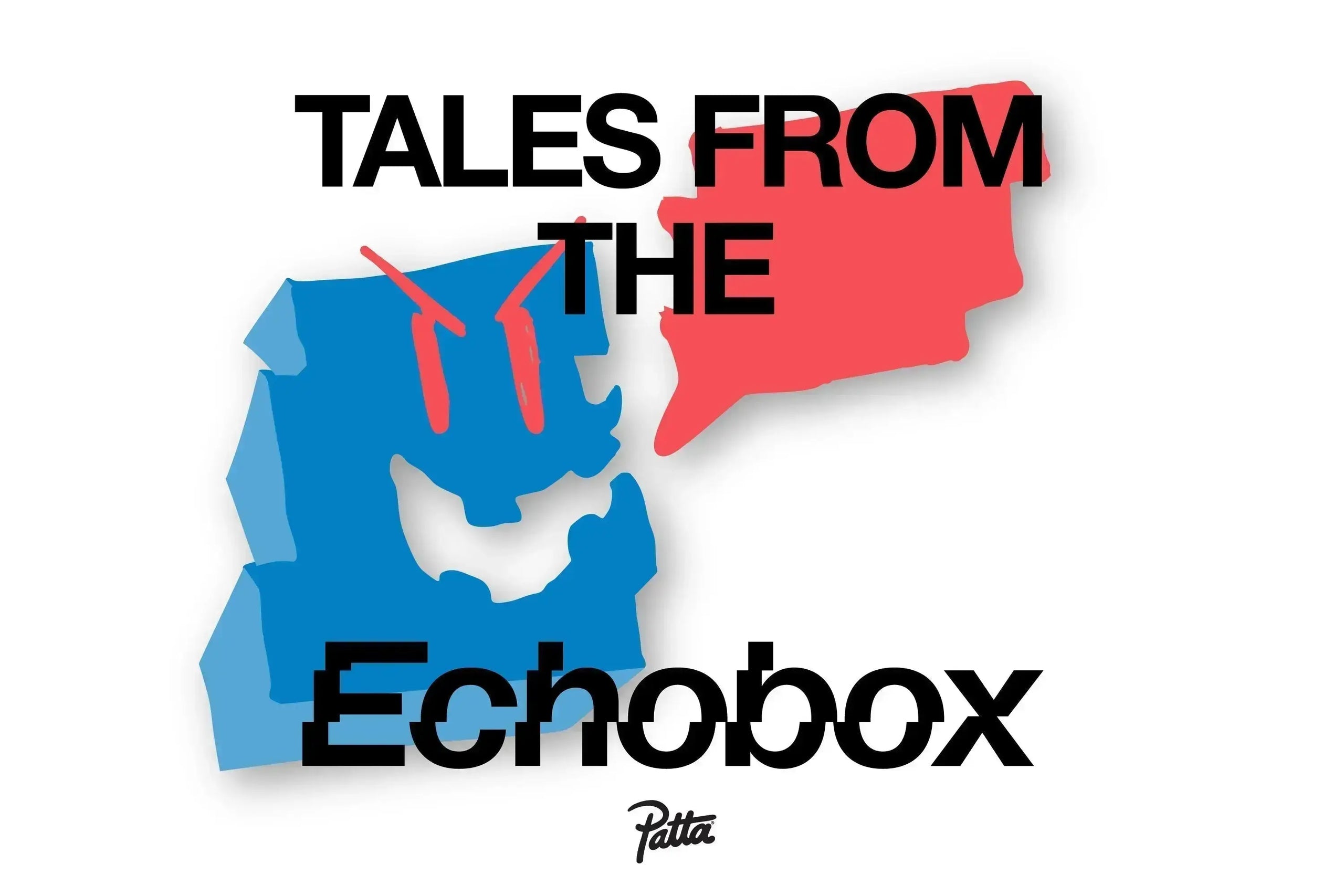
Interview by Monse Alvarado Alvarez
For the latest Tales From The Echobox, we sat down with Echobox resident, Kulumang at Café Warung PAS in Amsterdam Noord. We discuss his approach of constructing narratives through sounds, and his experience as part of Serumpun Kolektif. An Amsterdam-based collective that seeks to highlight the vitality and diversity of contemporary Indonesian and Southeast Asian creativity.
Kulumang is the creator of the show, Suara Serumpun, a monthly program that explores the sounds of Nusantara. Keep reading to learn more about it as we prepare his next show. Remember to tune in on www.echobox.radio
For those who are not familiar with Serumpun Kolektif, could you briefly introduce the group and the projects you work on?
The collective started out of a friend group. Today we’re about eleven people, and it came out of necessity. Most of us are Indonesian, mixed Indonesian or have Indonesian roots, and we live here in Amsterdam.
We had a feeling that the representation of contemporary Indonesian culture, the voices of Indonesia today, were overshadowed in the Dutch context.
As someone who is half Dutch, half Indonesian, and born in Indonesia, I missed the culture I knew from there. The discourse here was always overshadowed by the colonial past, Indonesia as a former colony, instead of focusing on what’s happening now and what people are saying today. Of course, it's important to talk about the complex history of Indonesia and the Netherlands, but we also want to share contemporary Indonesian culture: the creativity, the variety, and the talented people who often aren’t heard here.
And what kind of projects does the collective represent? I read that Café Warung PAS was initiated by one of your members, Petra.
Yes, that was done by Petra and it is now like a homebase for the collective. Food is such an important part of Indonesian culture, so we’re really happy that the restaurant became a place to connect.
For example, on the 17th of August we celebrated Indonesian Independence Day. This was the third time we organized it. Four years ago, we were actually the first ones to celebrate outside of the embassy here in the Netherlands.
Really?
Yeah. And now, four or five other parties are organizing Independence Day events as well. Before, people didn’t really think it was possible to celebrate it here the way people do in Indonesia, like a King’s Day, with parties, games, fun, and of course, food. That was something we missed.
Also, in the Netherlands, for a long time 17 August wasn’t even recognized as Indonesia’s Independence Day, from the Dutch perspective it was only two years later on the 27th of December, in 1949, after years of armed conflict and diplomatic negotiations. But in recent years, there’s been more discussion, remembrance days, and historical conversations that hadn’t been spoken about before. That’s important.
After one year of hosting your Echobox show Suara Serumpun, can you walk us through your creative process, including how you choose and invite guests?
Suara Serumpun is really an extension of the collective. It’s not only about Indonesia but also about Nusantara, a pre-colonial context for the broader maritime Southeast Asian region, including parts of Malaysia, Singapore, Thailand, and the Philippines. Culture isn’t defined by borders, so it feels natural to also play music connected culturally but from different countries.
My creative process starts with curating music from the region. I discover new scenes, often from Indonesia, because that is my starting point, but also I started broadening out to Malaysia, for example. For example, we had a guest, rEmPiT g0dDe$$, a Malaysian artist, who came here and played a live set. Through her I learned a lot about music from other areas of Nusantara.
We’ve had both live sets and pre-recorded ones. Some guests came to the studio. We had two live sets from Xin Lie and rEmPiT g0dDe$$ while she was performing at Rewire festival. While others connected with us remotely, like the set from Xin Lie that we broadcast as a pre-recorded set. I also try to include local guests from Amsterdam to add their perspective.
The guest lineup is not random, it depends on timing, connections, and opportunities.
The shows I play, though, follow a more cinematic kind of way. I try to create storytelling through sound, with emotional qualities and field recordings to make it flow. My aim is to capture the dense, humid mysticism that drifts through the Nusantara atmosphere.It can move from slow to fast, ambient to energetic and make it dynamic. I also tend to push toward the experimental side and the different scenes, because I think that’s where a lot of amazing, lesser-known sounds come from. I want to highlight those voices. At the same time, I’m aware that the curation also reflects my own taste, and I sometimes question how much space my taste should take up. But I think it’s important to find a balance to represent the culture.
How do you engage in dialogue with the diaspora through the show? Has it sparked new projects, collaborations, or connections in Amsterdam and abroad?
Yes, definitely. For example, through the show we connected with Half East Records, a collective in London that focuses on Southeast and East Asian music. They came here for Independence Day, which created a new link between us. Beyond these international ties, the show also sparked local initiatives, like Raung. Our first edition took place in 2024 at the Sun Studios in Rotterdam, where we invited Kuntari, a two-man band from Indonesia, to close their European tour. By coincidence, on 6 September we have an event at Felix Meritis, where they’ll also open their next tour. These kinds of connections keep growing.
We also bring together traditional and experimental perspectives in music. For example, the Raung event at Murmur featured derozan, Mangruv, and Bintang Manira. We explored Indonesian tonal scales and percussion rhythms, blending them with more contemporary, experimental approaches. In this way, the show functions as a hub, connecting local and international artists and helping build a network of culture and creativity.
That’s beautiful. Okay, and what can we look forward to in your next show? Could you give us a small sneak peek?
For the one-year anniversary, I want to create a compilation of my favorite tracks from the past year, something that really represents the spirit of the show. For the future, I’d like to include more guests, go deeper conceptually, but still keep the spontaneity.
Nice. So after a year of experimenting, you feel you’ve found the basics of what you want, and now you’re ready to expand.
Exactly, I know what I like, what works, and what I want to develop further. The show really works as a meeting point, a place where artists can connect with each other and with the local scene. I hope it helps build a stronger network with like-mind artists around Indonesian and Southeast Asian culture.

